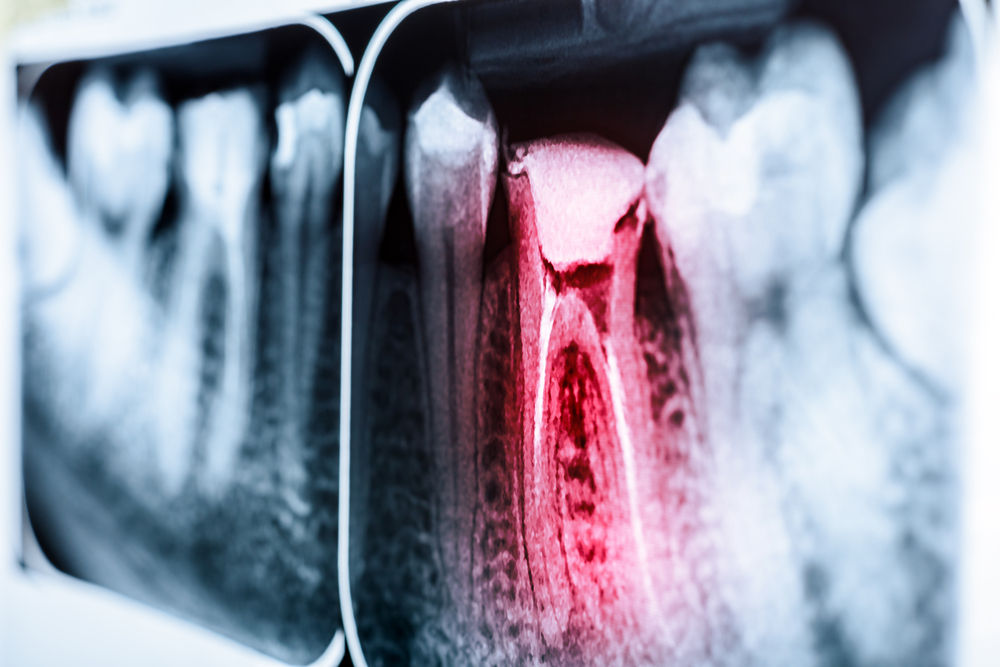How Does a Root Canal Form?
Has your dentist told you that you need a root canal? If so, you’re not the only one. Millions of Americans are diagnosed with root canals each year. Surgery is necessary when people have severe tooth infections that infect the central pulp of the tooth. Luckily, root canal surgery offers a quick way of treating it. While there is a solution to this problem, it’s always best to prevent it in the first place. This blog will go over how root canals form and how to prevent them!

How Does a Root Canal Form?
In simple terms, root canal infections are often caused by bacteria. There are usually various strains of bacteria found in infected teeth, meaning that there isn’t a single type that causes it. The first question that must pop in your head is: how do these bacteria get there in the first place? To answer this, one must first think of root canals as a bigger, more painful version of a cavity. With cavities, bacteria cause tooth enamel and the dentin layer to decay. It causes the holes that we all know of as cavities. These holes are painful and can cause toothache if they reach down deep enough. This is where patients usually meet with a dentist and get it filled. Root canals are very similar except for the fact that they go a lot deeper into the tooth.
Root canals affect the pulp or inner root of the tooth. This inner layer is extremely sensitive due to it being full of nerves and blood vessels. When it becomes infected, it sends a shooting pain through your tooth and jaw. Root Canals are basically very deep versions of cavities that infect the tooth and the soft, nerve-filled root.
Root canals take a long time to form. It can take several months before you notice the issue. The only way to solve this issue is with root canal surgery as it removes the infected tooth root so that it can enable the tooth to heal.

Causes of Root Canal
As previously mentioned, bacteria are the leading cause of root canal infections. However, there are a couple of different ways bacteria can enter the tooth and cause the infection:
Untreated Cavities
If a cavity is left untreated for several months, it can eventually turn into a root canal. The cavity-causing bacteria can continue to work their way through the tooth until finally reaching the root.
Trauma
If a patient has experienced a head or facial trauma and damaged one or more teeth, it can leave teeth vulnerable to trauma. Even something as small as a chipped tooth can be enough for bacteria to enter the enamel and work its way towards the root.
Fillings
There are times where filling from old cavities crack and leave gaps. This allows harmful bacteria to enter the weakened tooth. This can also happen with new fillings that were not set properly. Any kind of gap can create the perfect pathway for bacteria to do their thing. In order to prevent this issue, you should select a trustworthy and experienced dentist to take on the procedure.
Tips to Prevent Root Canals
To prevent tooth canals, it’s important to follow the same dental hygiene habits as that of cavity prevention. Tips to prevent root canals include:
- Brushing your teeth at least twice per day
- Flossing at least once per day
- Using fluoride rinse or fluoride toothpaste
- Checking-in with your dentist at least twice per year
- Limiting your intake of refined carbohydrates and sugary foods
- Avoiding acidic drinks and foods like soda and citrus juices
- Checking in with your dentist immediately if you feel any type of tooth pain
Visit Carmichael Dentistry for Root Canal Surgery
Knowing how a root canal forms is important as it helps you become aware of its causes. While root canals can be painful, with surgery, you’ll be as good as new. The experienced team at Carmichael Dentistry can help to diagnose and treat your root canal. Give us a call at (858) 484-2560 or click here to schedule an appointment.




